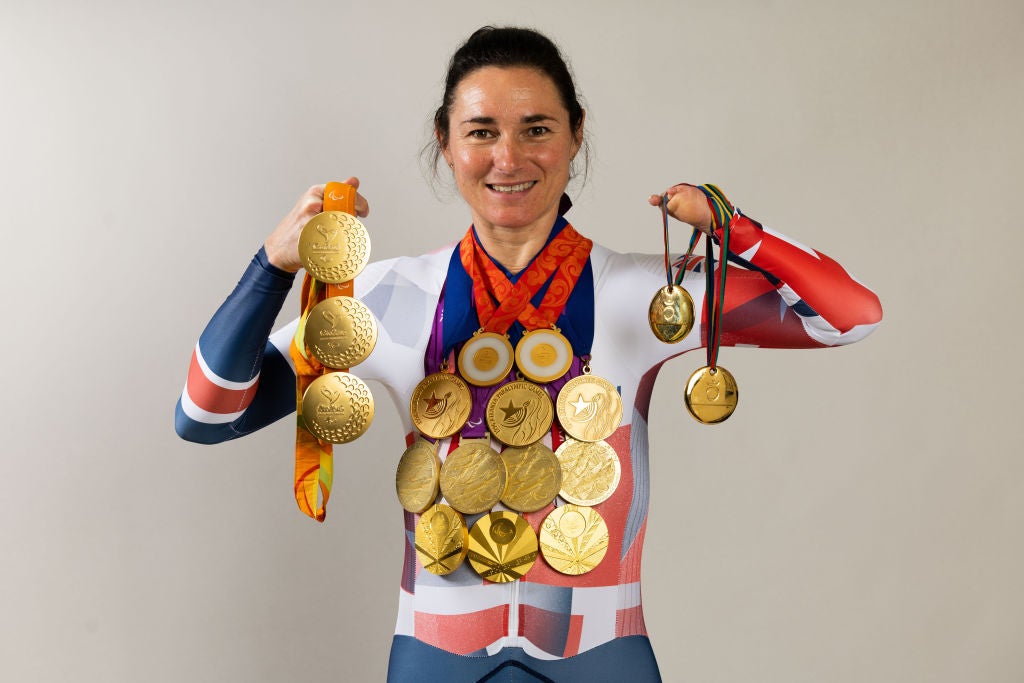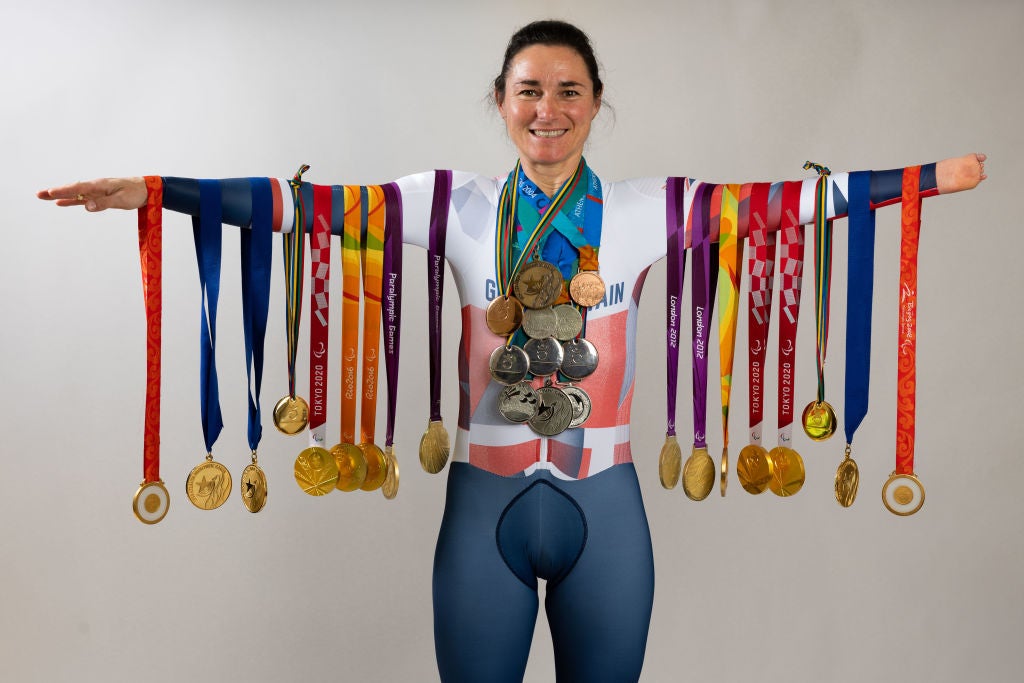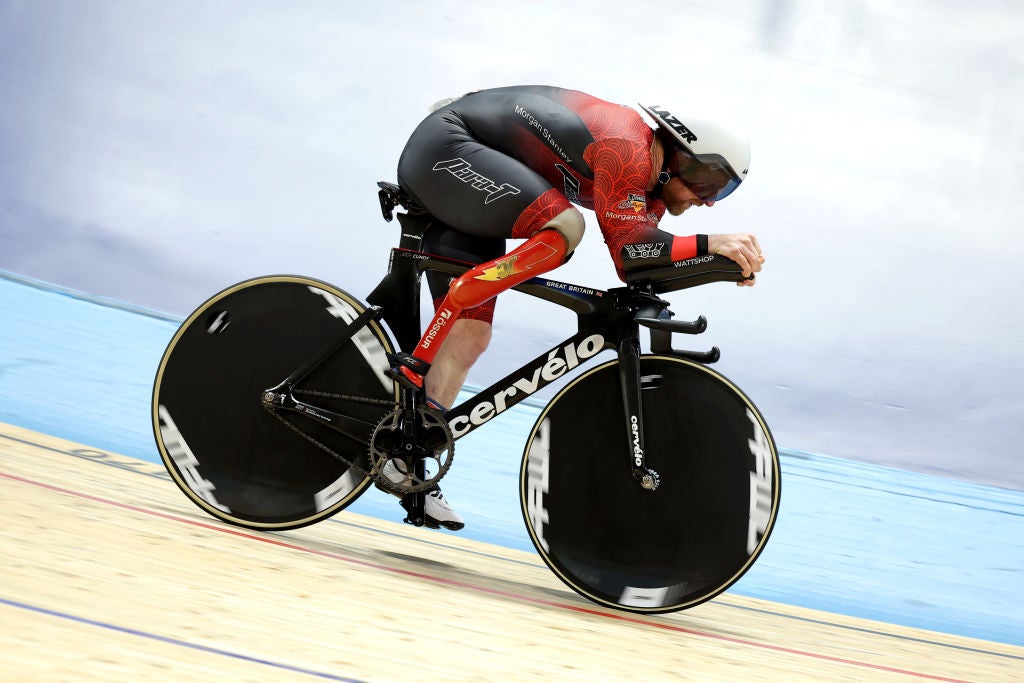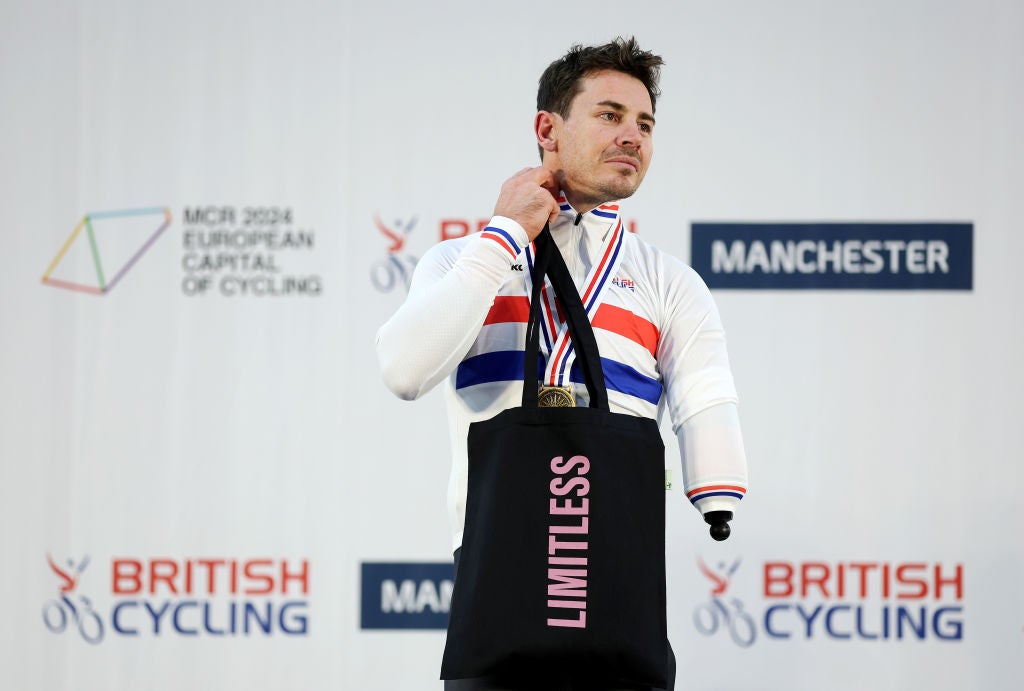ParalympicsGB has immense experience – but that also highlights the challenge at Paris 2024
Dame Sarah Storey will compete at a record ninth Games and has won 17 golds already

Your support helps us to tell the story
From reproductive rights to climate change to Big Tech, The Independent is on the ground when the story is developing. Whether it's investigating the financials of Elon Musk's pro-Trump PAC or producing our latest documentary, 'The A Word', which shines a light on the American women fighting for reproductive rights, we know how important it is to parse out the facts from the messaging.
At such a critical moment in US history, we need reporters on the ground. Your donation allows us to keep sending journalists to speak to both sides of the story.
The Independent is trusted by Americans across the entire political spectrum. And unlike many other quality news outlets, we choose not to lock Americans out of our reporting and analysis with paywalls. We believe quality journalism should be available to everyone, paid for by those who can afford it.
Your support makes all the difference.Experience is not in short supply in the ranks of ParalympicsGB and that is not necessarily a good thing.
Paris 2024 will see records tumble when it comes to longevity and while all remarkable achievements individually, they are best served with a note of caution.
Before London 2012, no athlete had represented ParalympicsGB eight times; in Paris, we will see three golden oldies who have done so.
Dame Sarah Storey will become the first British athlete to compete at nine Games, with Britain’s greatest Paralympian having made her debut as a swimmer at Barcelona 1992.
Clearly, this is a remarkable achievement for an athlete who has successfully adapted her training around motherhood, overcome injury and blazed a trail with her eponymous Storey Racing trade team.
“Charlie [her son] said after Tokyo, ‘I want to watch you at the Paralympics, Mum’ and I’m like, ‘Oh, OK, here we go again, back on the rollercoaster’” said the 46-year-old, who is a 17-time gold medallist.
“That was a huge motivation. Obviously, I wouldn’t have said yes if I didn’t think my body and mind were up to it, because there’s a huge amount of work that goes into getting there.”

Canoeist Jeanette Chippington, 54, will feature at her eighth Paralympics. She has followed a similar arc and competed five times as a swimmer starting all the way back at Seoul 1988. These Games will take on extra significance for Chippington as the first without either of her parents.
“My career has spanned such a long period of time, and this is one of the challenges that has been thrown at me,” she said. “You have just got to be patient and keep trying. That’s one thing that I hope my own children have taken away from watching me and I get that from my mum – never giving up.”
At 45, Jody Cundy believes his short-lived stint on Strictly Come Dancing has made him stronger than ever as he winds up for an eighth Games and fifth as a cyclist.

“There were bits from the dance that actually transferred over, mainly in the gym, with balance and coordination,” said Cundy.
“I came back to the gym, and I was stronger, even though I’d not lifted for a few weeks, from doing the dancing. I had more core stability. That was a real nice gain.”
These stories leave you feeling warm and fuzzy but the cold, hard numbers show a dearth of new talent in British disability sport.
Of the 215 GB athletes that will compete for medals in Paris, there are only 81 debutants. There are 49 Paralympic champions in their ranks.
The picture on the Olympic side looks radically difficult, with 48 per cent of Team GB having made their bows in Paris, compared to 38 per cent on the Paralympic side.
One insider at a leading sport said: “It’s really important we use Paris to inspire the next set of athletes. Recruitment isn’t a struggle but we can’t be complacent that these athletes are going to fall on our laps.”
Talent transfer programmes are used successfully across the system, creating multi-sport Paralympic medallists like Storey, Chippington and Cundy. Creating a broader critical mass is proving the challenge – sports insist that several athletes have missed out in tight selection battles but it is not immediately clear where they are.
British Cycling’s Limitless programme offers a shining example of how to go about it.

Its principal claim is to have got 1,500 more disabled people on bikes but crucially, it is linked up with the high-performance system and a total of seven riders have progressed from the Limitless programme onto the talent pathway.
It is hoped that five of them will go on to represent ParalympicsGB at LA 2028, a sign that change is coming.
“Cycling provides disabled people with a powerful sense of freedom and belonging which is still sadly lacking in so many other areas of life,” said Daphne Schrager, one of those 81 debutants and a gold medal favourite.
“The more disabled people riding and competing, the better our chances of more success at the Paralympics.”
:: National Lottery players raise more than £30m a week for good causes, including vital funding into sport – from grassroots to elite. To find out more visit: lotterygoodcauses.org.uk
Join our commenting forum
Join thought-provoking conversations, follow other Independent readers and see their replies
Comments